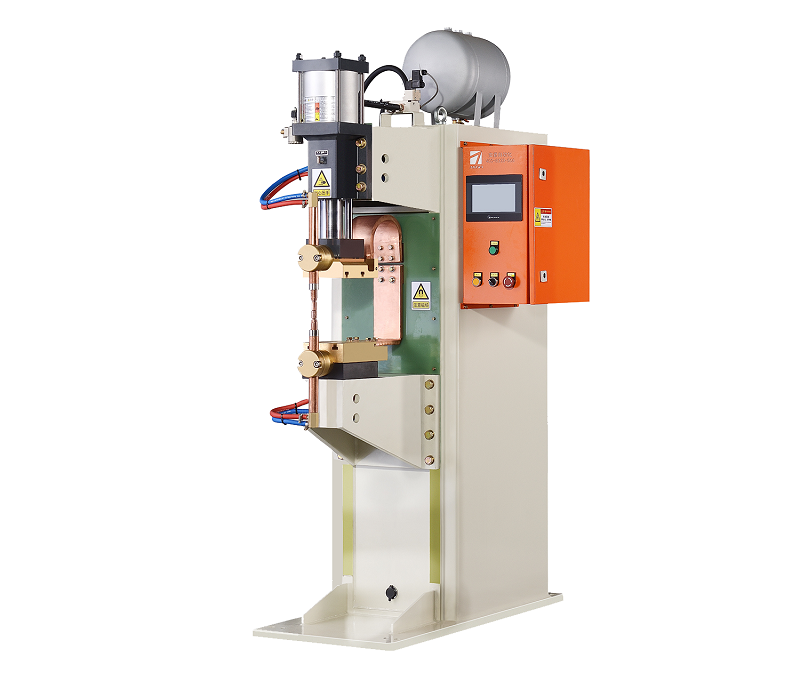The efficiency of a medium frequency spot welding machine is crucial for optimizing production processes and achieving high-quality welds. This article explores the various factors that influence the efficiency of using medium frequency spot welding machines and their impact on overall welding operations.

Factors Influencing Efficiency:
- Electrode Material Selection: The choice of electrode material directly impacts welding efficiency. Properly selected materials with high thermal conductivity and wear resistance can result in better heat transfer, reducing the risk of electrode damage and improving weld consistency.
- Electrode Maintenance: Regular maintenance of electrodes, including cleaning, re-dressing, and proper storage, can significantly enhance welding efficiency. Well-maintained electrodes ensure consistent performance and extend the lifespan of the equipment.
- Welding Parameters: Accurate setting of welding parameters, such as welding current, time, and electrode pressure, is essential for efficient and reliable welds. Improper parameter settings can lead to defects, rework, and decreased efficiency.
- Cooling System Performance: The effectiveness of the cooling system in dissipating heat from the electrodes and the workpiece influences both the quality and efficiency of the welding process. An efficient cooling system prevents overheating and extends equipment life.
- Power Supply Stability: Stable power supply is critical for maintaining consistent welding conditions. Fluctuations in power supply can result in variable weld quality and reduced efficiency.
- Material Compatibility: Different materials require specific welding conditions. Using the appropriate settings for different materials ensures optimal weld quality and prevents inefficiencies caused by poor fusion or incomplete penetration.
- Operator Skill and Training: Well-trained operators who understand the machine’s operation and welding principles can achieve better welding results efficiently. Adequate training minimizes errors and reduces the need for rework.
- Fixture and Workpiece Preparation: Proper fixture design and workpiece preparation ensure accurate alignment and secure clamping during welding. These factors contribute to consistent and efficient welding.
- Electrode Replacement Strategy: Implementing a proactive electrode replacement strategy helps prevent unexpected downtime due to electrode failure. Regularly replacing worn electrodes ensures continuous production without interruptions.
- Quality Control and Inspection: Incorporating quality control measures and inspection processes helps identify defects early, reducing the need for rework and enhancing overall efficiency.
The efficiency of using a medium frequency spot welding machine relies on a combination of factors, ranging from electrode material selection to operator skill and maintenance practices. Manufacturers aiming to optimize their welding processes should consider these factors and implement strategies to ensure stable, consistent, and high-quality welds. By addressing these aspects, companies can enhance their productivity, reduce operational costs, and deliver superior welded products to their customers.
Post time: Aug-21-2023







